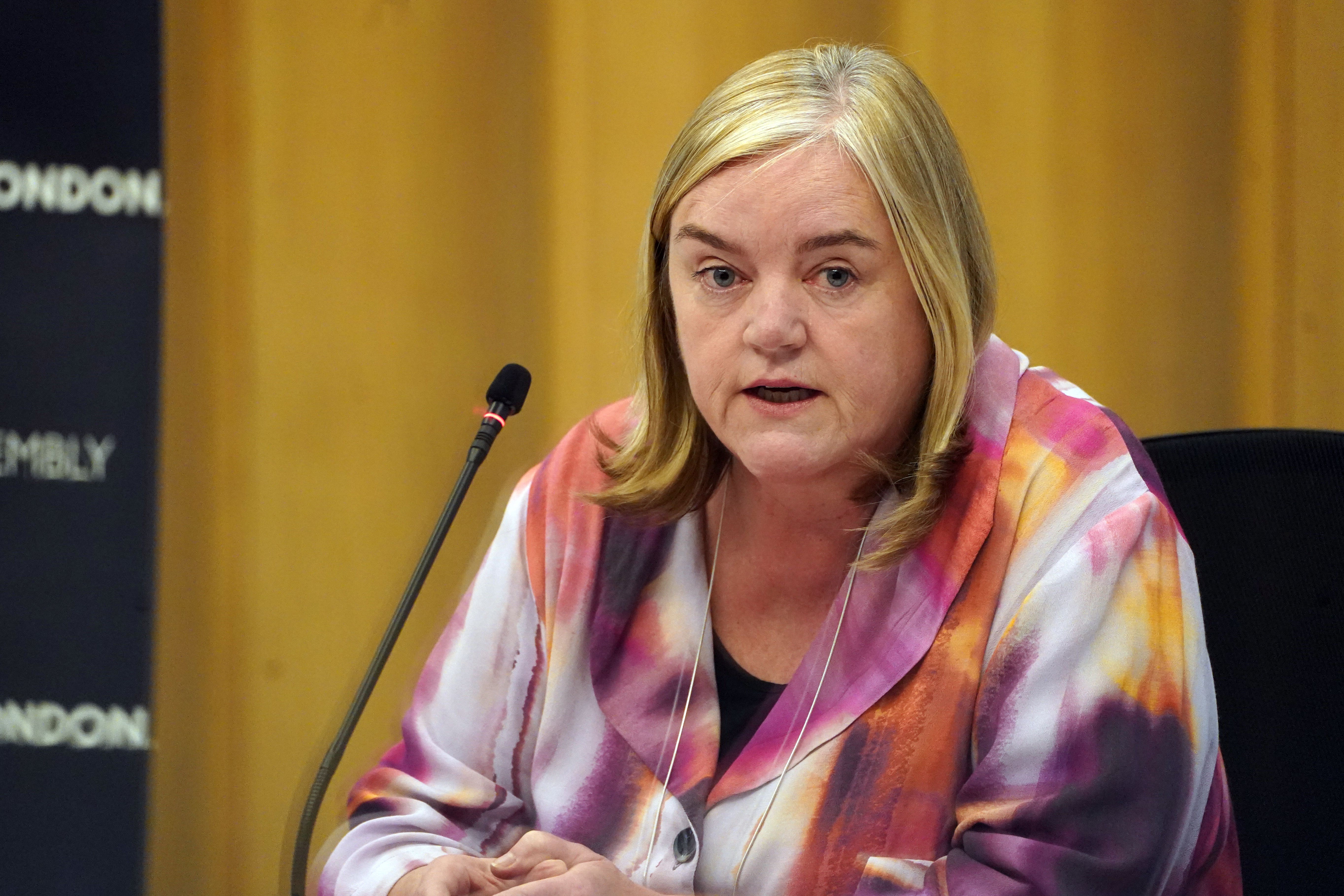Accepting term ‘institutional’ would help move things on – Baroness Casey
The issue was discussed during a debate on BBC Radio 4 on Tuesday night.

Your support helps us to tell the story
From reproductive rights to climate change to Big Tech, The Independent is on the ground when the story is developing. Whether it's investigating the financials of Elon Musk's pro-Trump PAC or producing our latest documentary, 'The A Word', which shines a light on the American women fighting for reproductive rights, we know how important it is to parse out the facts from the messaging.
At such a critical moment in US history, we need reporters on the ground. Your donation allows us to keep sending journalists to speak to both sides of the story.
The Independent is trusted by Americans across the entire political spectrum. And unlike many other quality news outlets, we choose not to lock Americans out of our reporting and analysis with paywalls. We believe quality journalism should be available to everyone, paid for by those who can afford it.
Your support makes all the difference.Baroness Louise Casey has said it would “mean so much” if Sir Mark Rowley accepted the term “institutional” regarding the failings in the Metropolitan Police.
The report by Baroness Casey, commissioned in the wake of Sarah Everard’s murder, found the Metropolitan Police is institutionally racist, misogynist and homophobic, and laid bare a slew of troubling incidents.
When her findings were published, she also warned there may be more officers like killer Wayne Couzens and serial rapist David Carrick.
A war of words has continued over the use of the phrase “institutional” to describe the failings in the force, with Sir Mark saying he accepted the diagnosis of racism, misogyny and homophobia in the Met, but would not use the term institutional because it has become politicised and is ambiguous.
Speaking on BBC Radio 4’s The Today Debate – Policing and us – how do we fix it?, alongside Met Commissioner Sir Mark, Baroness Casey said: “I think it’s really important for Londoners, and particularly people of colour in London, and women and children, that somehow there’s a moment where actually just sort of accepting what people want you to accept is more important than me, or you, or even the report I suppose, Mark.”
She added: “So, I sort of think to myself, this is where we are in 2023, and it would just mean so much, I think, if we could – I know you accept it all – but also accept the description, I think, whether it’s organisational or institutional.
“I just think it would really help move things on.”
Mina Smallman, the mother of murdered sisters Nicole Smallman and Bibaa Henry, also took part in the debate.
Former Met constables Deniz Jaffer and Jamie Lewis were jailed for two years and nine months each in December 2021 for sharing photographs of the bodies of the two sisters on WhatsApp.
The pair were supposed to be guarding the scene where Ms Henry, 46, and Ms Smallman, 27, had been stabbed to death in a park in north-west London, and shared the pictures for “a cheap thrill”, a court was told.
Ms Smallman said she was “gobsmacked” at Sir Mark refusing to use the term “institutional”, describing it as “an own goal”.
Speaking at the debate, Sir Mark said the Met “fully” accepts Baroness Casey’s report but said the term “institutional” means different things to different people and is “quite ambiguous”.
Last week, Baroness Casey said the commissioner branding it a political term is a “get-out-of-jail card” for those facing scrutiny over difficult subjects.
Elsewhere during the Radio 4 debate, Ms Smallman said what worries her is that the report “can disappear again”, adding: “I’m sick and tired of people hiding behind reports and feeling as though the job is done because the report’s done it.
“But, actually, the hard work of putting everything in place is not done. It’s not followed through.”